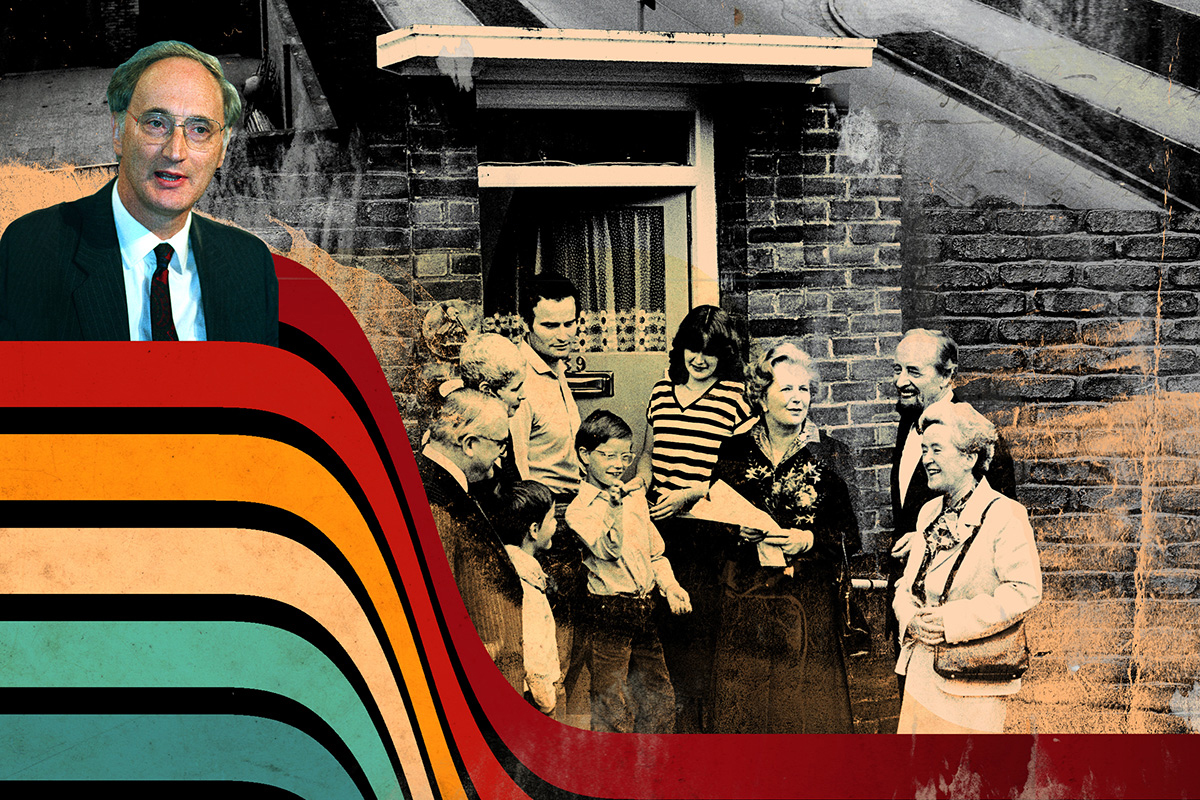You are viewing 1 of your 1 free articles
 Jules Birch
Jules BirchWith the end of the eviction ban, where is the ‘Plan for Winter’ for those in housing need?
As a second wave of coronavirus arrives and the weather turns colder, tenants in England facing up to the end of the evictions ban and all the furloughed workers who will no longer have a ‘viable job’ from next month need a plan for winter. They do not have one yet, writes Jules Birch
In March housing secretary Robert Jenrick promised that nobody will lose their home because of the pandemic. In June that turned out to mean that nobody will lose their home this summer.
The evictions moratorium was extended twice at the 11th hour but there was no movement this time and it ended last Monday – a day before the autumnal equinox – with an empty promise of “comprehensive support for renters”.
If the moratorium had expired a week later – after the new pandemic restrictions for the next six months announced by Boris Johnson on Tuesday and after the new Job Support Scheme announced by Rishi Sunak on Thursday – the pressure for it to be extended would have been overwhelming.
Instead, with promises of Christmas truces, exemptions for areas in lockdown and prioritisation of cases, we have lurched into a situation that ensures that lots of people definitely will lose their homes in the next few months.
Exactly how many remains to be seen – the government is clinging to its claim that only 3,022 private and social landlords applied to the courts for possession between April and June, but Generation Rent estimates that 55,000 tenants could be left with no protection and Shelter says 300,000 have fallen behind on their rent – and will depend on the complex interaction between the law as it stands, the new regulations and guidance and capacity in the courts.
Reassurances from ministers contrast with reports that 200 extra district judges and tribunal judges have been hired to hear extra eviction cases.
Looking at debates on the issues in the House of Lords and House of Commons on Wednesday, four points really stood out for me.
The first is a loophole in the regulations raised by Liberal Democrat peer Baroness Grender. When the evictions ban was extended for what turned out to be the last time at the end of August, the government also increased the notice period to six months – but that does not apply to notices served before that.
As she pointed out: “Many notices served at the height of the pandemic have already expired, or the best-case scenario is three months’ notice.”
The Lords rejected her fatal motion against the regulations and instead expressed its “regret”.
The hardly reassuring answer from Earl Howe for the government was the government could not act retrospectively: “In practice, those who received notice before 29 August were protected from eviction by the suspension of possession hearings until 20 September, as well as by the prioritisation of cases in the courts and the new requirements placed on landlords to which I have referred.”
But the following day Baroness Kennedy, director of Generation Rent, spelled out the consequences of that for one renter who lives alone and lost his job: “He received a one-off Discretionary Housing Payment and while he gets Universal Credit, it covers only half of his rent. He received a Section 21 notice in May, so he has three months’ notice, and his rent debt means that he cannot get another landlord to take him on.”
The “new requirements” mentioned by Earl Howe mean that landlords must set out their tenant’s circumstances when they make a possession claims and produce a full arrears history when the claim is to do with rent arrears. Failure to do so means the judge can adjourn the case.
But my second point is the huge one raised repeatedly by opposition peers and MPs: judges have no discretion to take circumstances into account when landlords apply for Section 21 no-fault evictions or Section 8 cases for more than eight weeks of rent arrears.
As long ago as April 2019, the government promised to abolish Section 21 and that was also a manifesto pledge in December.
In the Commons on Wednesday, housing minister Christpher Pincher said that “the government are committed to repealing Section 21 in our Renters’ Reform Bill, and we will do that at the appropriate time, when there is a sensible and stable economic and social terrain on which to do it”.
But if the middle of a pandemic that has killed more than 40,000 people when you have promised “comprehensive support for renters” is not “sensible terrain” to do it, when is?
Nobody is claiming that the government could have banned evictions for ever but my third point is that you do not have to look very far to find countries that have extended their bans (even the English government has extended it to the end of the year for commercial tenants).
Scotland has extended its ban to the end of March – precisely the six months that Boris Johnson says the new coronavirus restrictions will last – and even the Trump administration in the United States has banned most evictions until the end of the year.
The action in the US came in a declaration from the US Centers for Disease Control and Prevention (CDC) and applies to all households earning less than $99,000 as an individual or $198,000 as a couple.
The rationale from the CDC is that: “In the context of a pandemic, eviction moratoria – like quarantine, isolation, and social distancing – can be an effective public health measure utilised to prevent the spread of communicable disease. Eviction moratoria facilitate self-isolation by people who become ill or who are at risk for severe illness from COVID-19 due to an underlying medical condition. They also allow state and local authorities to more easily implement stay-at-home and social distancing directives to mitigate the community spread of COVID-19. Furthermore, housing stability helps protect public health because homelessness increases the likelihood of individuals moving into congregate settings, such as homeless shelters, which then puts individuals at higher risk to COVID-19.”
All of which also applies to England but don’t hold your breath for similar action from Dido Harding and our new National Institute for Health Protection.
Given that, my final point is the lack of additional measures to support tenants and landlords to go with the end of the ban. Yes, ministers can point to those new requirements on the courts and the temporary restoration of cuts in benefits.
But Wales – which is also covered by the end of the ban because judicial affairs are not devolved from Westminster – has introduced other measures on top.
These include a deal already negotiated with social landlords as part of the rent settlement that there will be no evictions into homelessness, new funding for debt advice, increases in discretionary payment schemes and new Tenancy Saver Loans for private renters facing redundancy or short-time working.
As housing minister Julie James told me earlier this month: “That’s just straightforward common sense, isn’t it? If those people start to present as homeless, they start both in human terms and in straightforward financial terms to be very considerably more expensive than they are being maintained in their secure home where they want to stay.”
The same common sense should surely apply to all the tenants in England facing up to the end of the evictions ban and all the furloughed workers who will no longer have a ‘viable job’ from next month.
Not much ‘Plan for Winter’ to be seen here.
Jules Birch, Inside Housing columnist
Sign up for our daily newsletter
Already have an account? Click here to manage your newsletters












